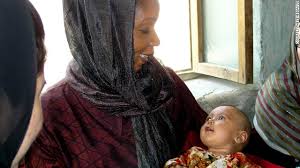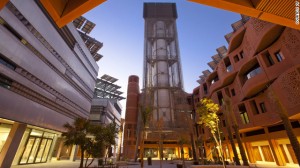Helene Gayle must be one of the few chief executives who dreams of a world where her job doesn’t exist.
In fact, the president of one of the biggest poverty charities on the planet — CARE USA — would
probably prefer it if there was no need for her organization at all.
Yet on any given day there will be a humanitarian disaster unfolding across the globe — from violence
in Somalia, to flooding in Pakistan, and chemical warfare in Syria. And all of them need CARE.
Since it first began over 60 years ago with American charities sending food packages to World War Two
survivors, CARE International — of which CARE USA is a member — has become one of the largest aid
organizations in the world, with 10,000 staff working in some 80 countries.
“The more you look into health and health inequalities, you realize that a lot of it is not due to a
particular disease — it’s really linked to underlying societal issues such as poverty, inequity, lack of
access to safe drinking water and housing,” she said.
I -Word Understanding
Humanitarian Disaster – series of events which represents a critical threat to the health, safety, security
or wellbeing of a community.
Health inequalities – differences in mobility between elderly people and younger populations or
differences in mortality rates between people from different social classes.
Societal issues – are moral problems that affect a member or members of a society directly or indirectly.
Some of these issues include poverty, divorce, bullying,and others.
Inequity – lack of fairness or justice
II- Have your say
1.According to Miss Helen Gayle, ‘being fearless fueled my success. Perhaps, men may agree that only
few determined women can achieve success.
2.One of the growing health epidemic in the globe is HIV. A few years ago less that 1% of people who
needed treatment [for HIV] had access to it and now it’s up to 55% and growing.
3.There are lots of humanitarian disasters across the globe.In your country what are the most common
humanitarian disasters.



